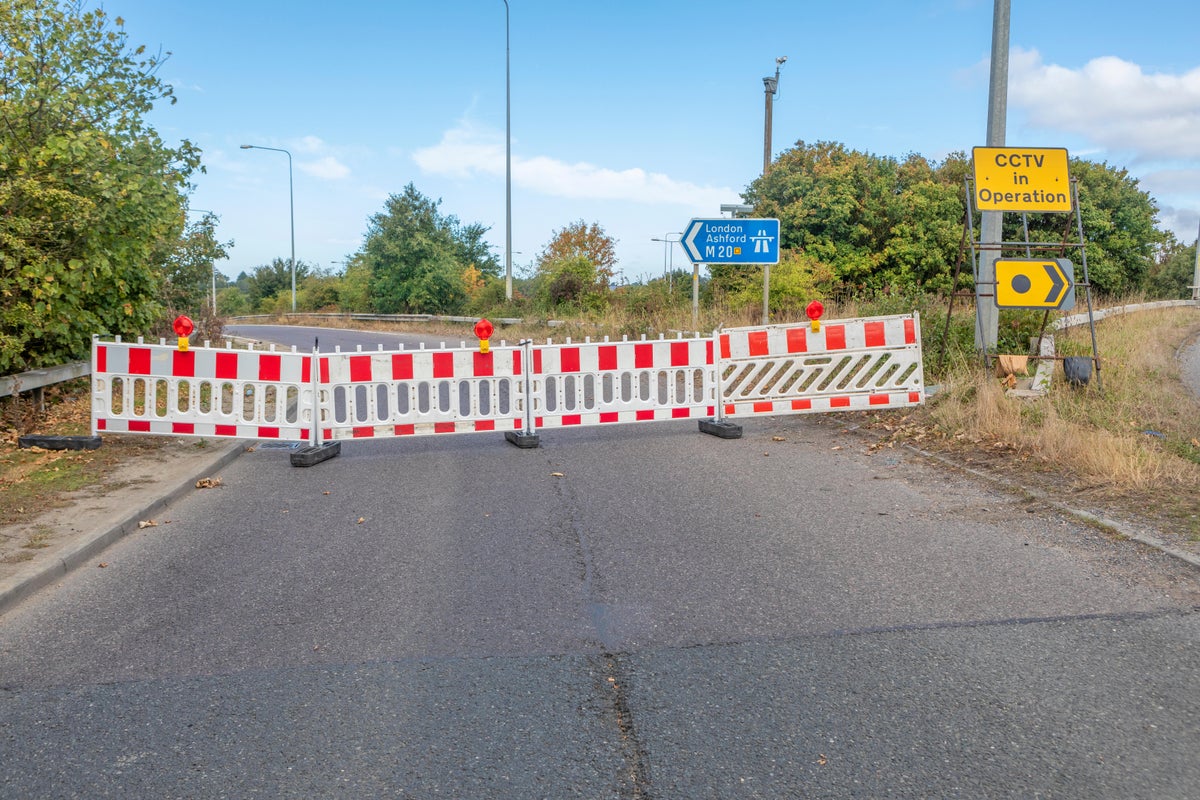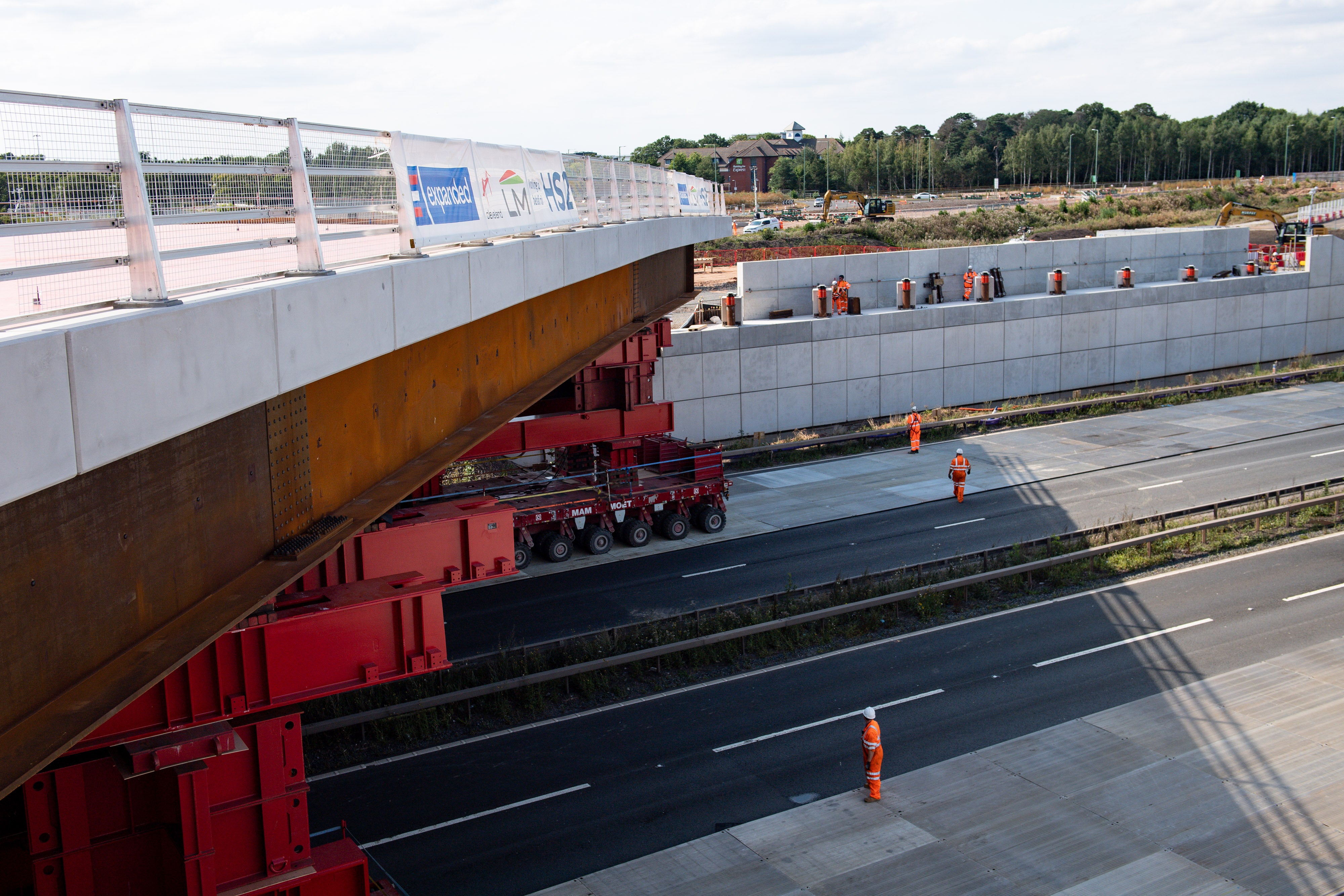
Drivers face more full closures of England’s motorways and major A roads as National Highways adopts a new approach to roadworks.
The Government-owned company announced it will ask project managers to consider shutting roads completely for several days instead of partial closures which cause disruption for months and even years.
Other measures to reduce disruption during roadworks include increasing the use of higher speed limits past work sites, clearer messaging for drivers and more effective diversion routes.

Full closures are designed to save taxpayers’ money and minimise the impact of major projects.
The method is already being used in a limited number of schemes.
The construction of an HS2 bridge over the M42 in north Warwickshire is being carried out through two closures over Christmas periods in 2021 and 2022, when traffic is lightest.
This is an alternative to 18 months of lane closures, narrow lanes and speed restrictions along with more than 100 overnight closures.
Plans are also being drawn up to complete improvements to the A47/A11 junction outside Norwich via a nine-day full shutdown and a limited number of overnight closures.
This is instead of lane closures, contraflows and 30mph speed limits lasting nearly three years.
Prolonged roadworks can be stressful for drivers and local communities, so we’re committed to exploring other ways to further minimise the impact— Laura Baker, National Highways
National Highways said full closures – which usually last for up to fortnight – will “remain the exception rather than the norm” due to the impact on local communities.
Laura Baker, customer service director for major projects, said maintaining and improving motorways and major A roads is “vital” to keep them “as safe and reliable as possible”.
She went on: “We already aim to carry out this work in the least disruptive way possible by prioritising times when traffic levels are low, including overnight and at weekends.
“However, prolonged roadworks can be stressful for drivers and local communities, so we’re committed to exploring other ways to further minimise the impact.”
Other strategies being deployed to reduce disruption include expanding the “highest safe speed” approach to setting speed limits to include small-scale projects.
The technique was first introduced for major schemes two years ago and often involves limits being set at 60mph, up from 50mph previously.
The idea of full road closures for short periods as an alternative to keeping lanes shut for potentially years should also be in drivers’ best interests. It should be a case of short-term pain for long-term gain— Nicholas Lyes, RAC
Assessments found it led to journey time savings and greater compliance with limits.
A new approach will be taken to diversions, including through more consideration of the experience of drivers and a trial of different signage.
Electronic roadside boards will explain why drivers may not see workers all the time, such as when they are underground.
Work sites will also be decluttered with the removal of unnecessary signs.
RAC head of roads policy Nicholas Lyes said: “We know that roadworks and diversions can be frustrating for drivers, so it’s welcome that National Highways are taking steps to improve journeys affected by them.
“Evidence has demonstrated that raising the speed limit from 50mph to 60mph through certain major works not only improves journey times but has no detrimental impact on road safety.
At a time with potential disruption on the railways and trouble at airports, we make a plea that with more people on the roads over the summer, road closures should be avoided in these busy periods— Edmund King, AA
“The increased use of electronic message boards should also give drivers more dynamic information based on changing road and traffic conditions.
“The idea of full road closures for short periods as an alternative to keeping lanes shut for potentially years should also be in drivers’ best interests.
“It should be a case of short-term pain for long-term gain.”
AA president Edmund King said: “Shorter delays on roads will be welcomed by most drivers.
“At a time with potential disruption on the railways and trouble at airports, we make a plea that with more people on the roads over the summer, road closures should be avoided in these busy periods.
“As well as avoiding closures in the busiest periods, they should be co-ordinated between National Highways and local highway authorities to ensure disruption is minimised.”







